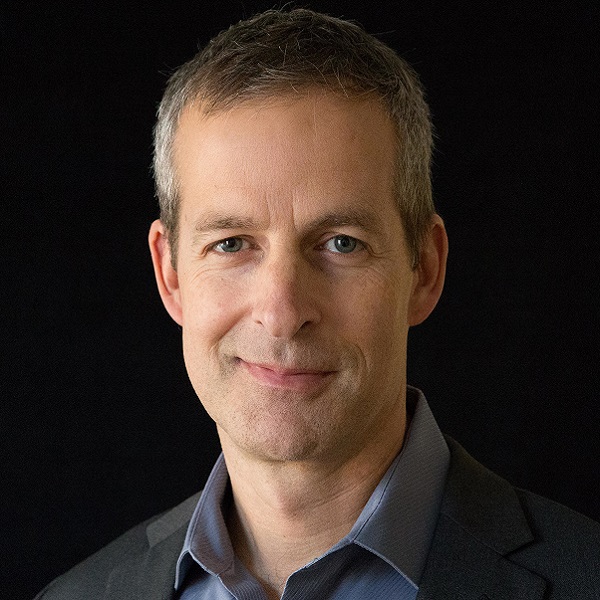“How to Kill Your Company"
A Colloquium on Consequence-driven Cyber Security Engineering for National Defense, Water Utilities, and Grid Utilities
Presented by:
Andrew Bochman (Senior Grid Strategist for Idaho National Laboratory (INL) National and Homeland Security directorate)
Andrew Ohrt, P.E. (Resilience Practice Area Lead at West Yost Associates, Duluth, MN)
Tuesday, October 5, 2021
Lecture 2:00 – 3:00 pm, Olin room 202
Reception 3:00 – 3:30 pm, Olin room 204
Open to the public
Marquette University Marquette University Map
Olin Engineering 16th Street Parking Structure
1515 W. Wisconsin Avenue 12th Street Parking Structure
Milwaukee, WI 53233 Video
In this presentation we’ll introduce the concepts associated with Consequence-driven, Cyber-informed Engineering (CCE). Developed by Idaho National Laboratory (INL), one of the US Department of Energy’s 17 national laboratories, and currently being deployed by critical infrastructure owners around the country, CCE is a ground-breaking approach to designing and securing more resilient physical systems. These days every piece of the equipment we use to run our world is designed in software and is operated in an increasingly automated or even fully automated fashion on complex software over digital networks. When things go well, on what we call blue sky days, it’s an unbeatable approach. But when something goes wrong, when skies turn grey or even black, our ability to understand the problem and restore operations is severely impaired. What’s more, when intruders take over control of our most critical processes or manipulate the data on which they depend, many organizations’ ability to “operate through” attacks is quite limited. INL partner West Yost is tuning the methodology to better secure water and wastewater operations, and we’ll be happy to discuss applications to other industrial sectors as well.
Andr ew Bochman is a Senior Grid Strategist for Idaho National Laboratory's (INL) National and Homeland Security directorate. He provides strategic guidance on topics at the intersection of grid security and infrastructure resilience to senior U.S. and international government and industry leaders. A Non-Resident Senior Fellow at the Atlantic Council’s Global Energy Center, in early 2021 he published his first book: "Countering Cyber Sabotage: Introducing Consequence-based Cyber-Informed Engineering." Andy began his career as a comms officer in the US Air Force, and prior to joining INL was the Energy Security Lead at IBM. Mr. Bochman received a BS degree from the U.S. Air Force Academy and an MA from the Harvard University.
ew Bochman is a Senior Grid Strategist for Idaho National Laboratory's (INL) National and Homeland Security directorate. He provides strategic guidance on topics at the intersection of grid security and infrastructure resilience to senior U.S. and international government and industry leaders. A Non-Resident Senior Fellow at the Atlantic Council’s Global Energy Center, in early 2021 he published his first book: "Countering Cyber Sabotage: Introducing Consequence-based Cyber-Informed Engineering." Andy began his career as a comms officer in the US Air Force, and prior to joining INL was the Energy Security Lead at IBM. Mr. Bochman received a BS degree from the U.S. Air Force Academy and an MA from the Harvard University.
 Andrew Ohrt is the Resilience Practice Area Lead for West Yost Associates in Duluth, MN. Since 2019 he has led the development of AWWA’s cybersecurity resources and training. Andrew serves on the Department of Homeland Security’s Control Systems Work Group, supporting the development of control system cybersecurity performance goals for the U.S. and the Water Sector. He and West Yost are partnered with Idaho National Laboratory to bring leading cross-sector cybersecurity practices to the Water Sector.
Andrew Ohrt is the Resilience Practice Area Lead for West Yost Associates in Duluth, MN. Since 2019 he has led the development of AWWA’s cybersecurity resources and training. Andrew serves on the Department of Homeland Security’s Control Systems Work Group, supporting the development of control system cybersecurity performance goals for the U.S. and the Water Sector. He and West Yost are partnered with Idaho National Laboratory to bring leading cross-sector cybersecurity practices to the Water Sector.
Sponsored by




 ew Bochman is a Senior Grid Strategist for Idaho National Laboratory's (INL) National and Homeland Security directorate. He provides strategic guidance on topics at the intersection of grid security and infrastructure resilience to senior U.S. and international government and industry leaders. A Non-Resident Senior Fellow at the Atlantic Council’s Global Energy Center, in early 2021 he published his first book: "Countering Cyber Sabotage: Introducing Consequence-based Cyber-Informed Engineering." Andy began his career as a comms officer in the US Air Force, and prior to joining INL was the Energy Security Lead at IBM. Mr. Bochman received a BS degree from the U.S. Air Force Academy and an MA from the Harvard University.
ew Bochman is a Senior Grid Strategist for Idaho National Laboratory's (INL) National and Homeland Security directorate. He provides strategic guidance on topics at the intersection of grid security and infrastructure resilience to senior U.S. and international government and industry leaders. A Non-Resident Senior Fellow at the Atlantic Council’s Global Energy Center, in early 2021 he published his first book: "Countering Cyber Sabotage: Introducing Consequence-based Cyber-Informed Engineering." Andy began his career as a comms officer in the US Air Force, and prior to joining INL was the Energy Security Lead at IBM. Mr. Bochman received a BS degree from the U.S. Air Force Academy and an MA from the Harvard University. Andrew Ohrt is the Resilience Practice Area Lead for West Yost Associates in Duluth, MN. Since 2019 he has led the development of AWWA’s cybersecurity resources and training. Andrew serves on the Department of Homeland Security’s Control Systems Work Group, supporting the development of control system cybersecurity performance goals for the U.S. and the Water Sector. He and West Yost are partnered with Idaho National Laboratory to bring leading cross-sector cybersecurity practices to the Water Sector.
Andrew Ohrt is the Resilience Practice Area Lead for West Yost Associates in Duluth, MN. Since 2019 he has led the development of AWWA’s cybersecurity resources and training. Andrew serves on the Department of Homeland Security’s Control Systems Work Group, supporting the development of control system cybersecurity performance goals for the U.S. and the Water Sector. He and West Yost are partnered with Idaho National Laboratory to bring leading cross-sector cybersecurity practices to the Water Sector. 


